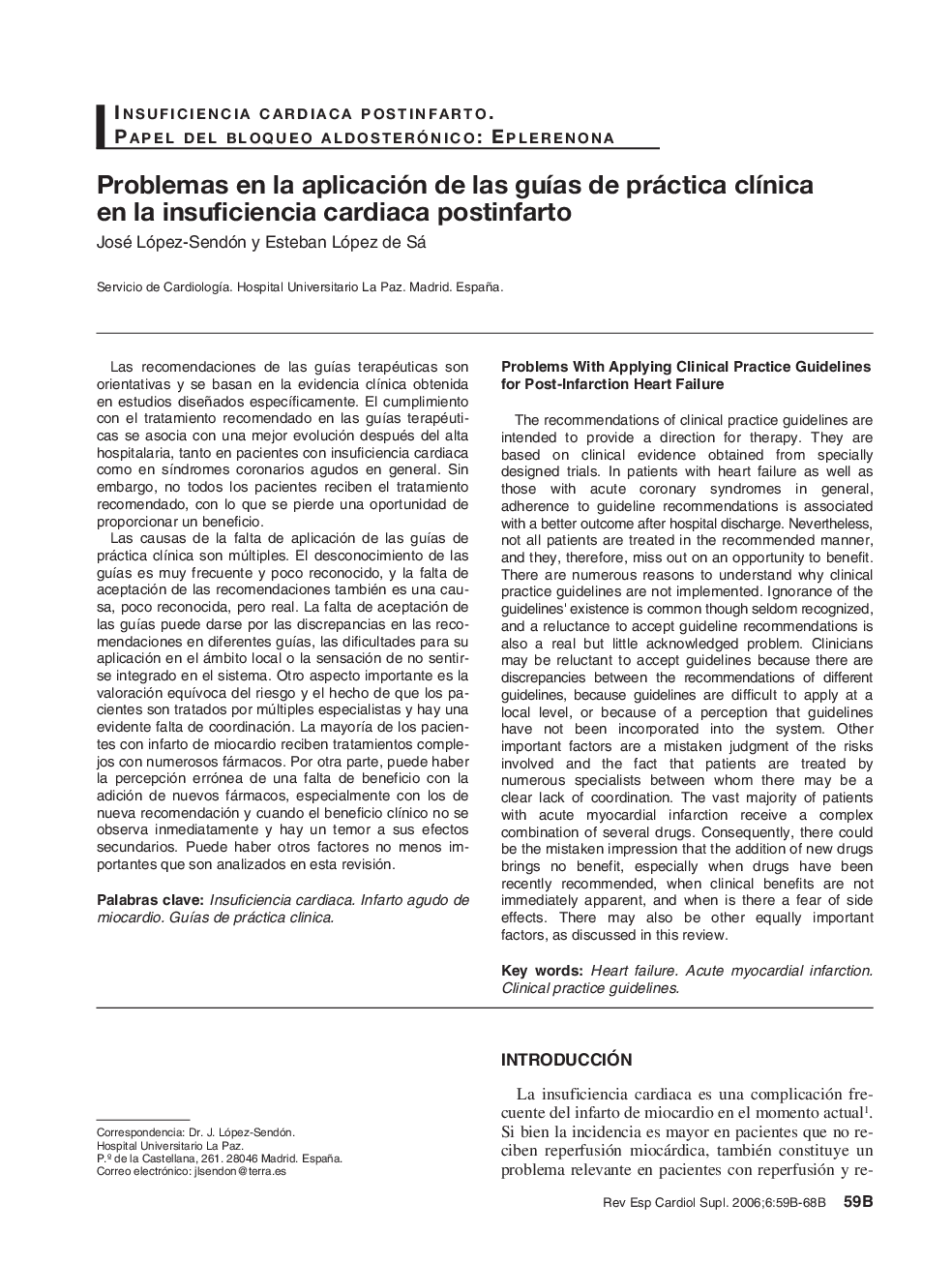| Article ID | Journal | Published Year | Pages | File Type |
|---|---|---|---|---|
| 3019739 | Revista Española de Cardiología Suplementos | 2006 | 10 Pages |
Abstract
The recommendations of clinical practice guidelines are intended to provide a direction for therapy. They are based on clinical evidence obtained from specially designed trials. In patients with heart failure as well as those with acute coronary syndromes in general, adherence to guideline recommendations is associated with a better outcome after hospital discharge. Nevertheless, not all patients are treated in the recommended manner, and they, therefore, miss out on an opportunity to benefit. There are numerous reasons to understand why clinical practice guidelines are not implemented. Ignorance of the guidelines' existence is common though seldom recognized, and a reluctance to accept guideline recommendations is also a real but little acknowledged problem. Clinicians may be reluctant to accept guidelines because there are discrepancies between the recommendations of different guidelines, because guidelines are difficult to apply at a local level, or because of a perception that guidelines have not been incorporated into the system. Other important factors are a mistaken judgment of the risks involved and the fact that patients are treated by numerous specialists between whom there may be a clear lack of coordination. The vast majority of patients with acute myocardial infarction receive a complex combination of several drugs. Consequently, there could be the mistaken impression that the addition of new drugs brings no benefit, especially when drugs have been recently recommended, when clinical benefits are not immediately apparent, and when is there a fear of side effects. There may also be other equally important factors, as discussed in this review.
Keywords
Related Topics
Health Sciences
Medicine and Dentistry
Cardiology and Cardiovascular Medicine
Authors
José López-Sendón, Esteban López de Sá,
